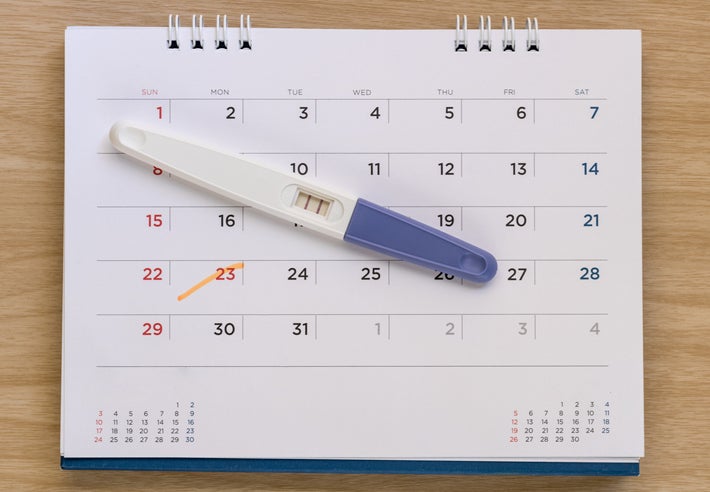-
Comparing Yeast Infections and Bacterial Vaginosis
Vaginal infections are very common. Most women will get one at some point during their lifetime, and many women get them more than once. Vaginal infections are treatable with over-the-counter (OTC) or prescription medications. The treatment you’ll need depends on the specific infection you have. Visit a gynecologist to determine whether you have a yeast infection or bacterial vaginosis.

Symptoms
Yeast infections and bacterial vaginosis have similar symptoms. Be sure to disclose all of your symptoms when you talk to your gynecologist, even if they don’t seem to be related. Generally, women with bacterial vaginosis may experience:
- Vaginal itching
- Burning pain with urination
- Abnormal vaginal discharge
- Foul-smelling odor
Like bacterial vaginosis, a yeast infection can cause intense vaginal itching. Women can also experience a burning sensation, especially during urination or intercourse. Other symptoms of a yeast infection are:
- Vaginal rash and irritation
- Redness and swelling of the vulva
- Abnormal vaginal discharge
Causes
Yeast infections are a type of fungal infection. An overgrowth of yeast, which is normally held in check by the Lactobacillus bacteria, causes yeast infections. Some of the risk factors of yeast infections include:
- Use of antibiotics
- Use of hormone therapy or oral contraceptives
- Impaired immune system
- Pregnancy
- Diabetes
Bacterial vaginosis is also caused by an imbalance. When there are more “bad” bacteria than “good” bacteria in the vagina, bacterial vaginosis can result. Some of the risk factors of bacterial vaginosis include:
- Douching
- Having multiple sex partners
- Having a new sex partner
Treatments
Yeast infection medications are available at pharmacies without a prescription. However, if you’ve never had a yeast infection before, you should go to your gynecologist to confirm the diagnosis. The medications can be taken as a vaginal suppository or in the form of a pill taken orally. But these antifungal medications don’t work on bacterial vaginosis. Instead, your gynecologist will need to prescribe an antibiotic pill or a medicated cream.
You’ll find a complete range of gynecology services at Washington Surgi-Clinic. Our highly trained providers are committed to supporting the health of each of our patients. Call (202) 659-9403 to request an appointment for vaginal infection treatment at our Washington, D.C. clinic.
-
When Can You Get a Chemical Abortion?
Chemical abortions, also known as medical abortions, are triggered by the use of medications. Although you may hear people refer to the abortion pill, there are actually two medications that are both taken to cause pregnancy termination. You’ll take the first pill at the clinic and the second at home. If you think you might want to terminate the pregnancy with medications, you’ll need to consult a gynecologist as soon as possible. There is a short window of time to get a chemical abortion.

Pregnancy test on calendar background. Pregnancy care concept.
Pregnancies less than six weeks by menstrual age may be terminated with medications. Medical abortions are highly effective. But in some cases, women still need to return to the clinic for a surgical abortion to complete the procedure. Before making the decision to have a chemical abortion, let your gynecologist know about your full health history. Women who have certain medical conditions and those who take certain medications, like blood-thinners, will need to have a surgical abortion instead.
Washington Surgi-Clinic performs safe, legal second and first trimester abortions. Women can call (202) 659-9403 to request a private, confidential consultation with one of our compassionate gynecologists in Washington, D.C.
-
Steps to Take After an Unplanned Pregnancy

Life often takes unexpected twists and turns. No matter how careful you are about using birth control pills and condoms, it’s still possible to unintentionally get pregnant. An unplanned pregnancy brings some difficult decisions. Know that even if you have a supportive partner who wants to explore your options together, it’s entirely your decision whether to continue the pregnancy or terminate it. You have the right to make decisions that affect your body. But before doing anything else, call your gynecologist and schedule an appointment.
Call your gynecologist.
Over-the-counter (OTC) pregnancy tests are usually accurate if they’re taken at least one week after a missed period. However, you’ll need a lab test to confirm the pregnancy. This is why you should call your gynecologist before doing anything else. It’s possible that you have a false positive result from the OTC test. If the lab test does confirm that you’re pregnant, the gynecologist can estimate how far along your pregnancy is.
Take prenatal vitamins.
Most women need a little time to decide whether to continue the pregnancy or get an abortion. Even if you’re leaning toward pregnancy termination, it’s a good idea to start taking prenatal vitamins right away. If you do change your mind and continue with the pregnancy, the folic acid in the prenatal vitamins will be crucial for preventing neural tube birth defects. And if you do choose to terminate it, your overall health will still benefit from taking the multivitamin.
Consider your options.
Don’t hesitate to discuss your feelings about the pregnancy with your gynecologist. It’s perfectly alright if you aren’t sure yet what you want to do. No ethical healthcare professional will ever pressure you toward one decision or the other. However, your gynecologist will give you the medical guidance you need to make an informed decision that’s right for you. The doctor can also tell you how long you have to make a decision. For instance, if you decide to have a medical abortion, you’ll need to have it within six weeks by menstrual age. If you opt for a surgical abortion, you have until 26 weeks of pregnancy to decide.
Washington Surgi-Clinic treats a limited number of patients each day because it’s our top priority to provide unsurpassed, individualized care and education. Our gynecologists in Washington D.C. can help you learn about your options for pregnancy termination, but ultimately, the decision is yours to make. For respectful and compassionate women’s healthcare, call (202) 659-9403.
Recent Posts
Popular Posts
categories
- Uncategorized
- STD
- Washington Surgi-Clinic
- Abortion
- Pregnancy
- Pap Smears
- Birth Control Options
- HPV
- Gynecologist
- Pregnancy Test
- Abortion Safety
- IUD
- Pregnancy Termination
- First Trimister
- Cervical Cancer
- Morning After Pill
- Birth Control Pills
- Chlamydia
- Birth Control Shot
- Gonorrhea
- STD Testing
- Birth Control Implant
- Pelvic Pain
- Birth Control Patch
- HIV
- HPV Vaccine
